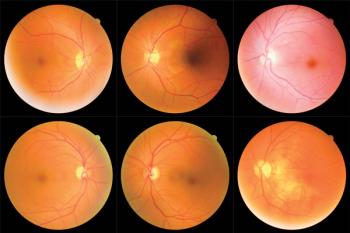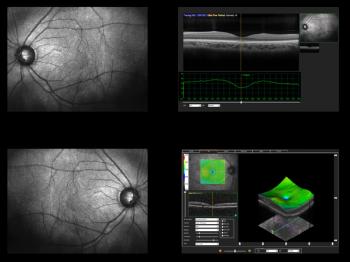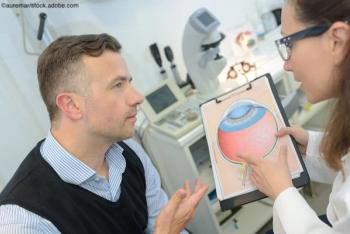
Investigational OCT system with AI-based image analysis holds promise
Cheryl Guttman is a medical writer based in Deerfield, Ill.

Investigational OCT system with AI-based image analysis holds promise

An interim analysis including data from almost 150 patients found an association between higher number of injections and increased risk of mild cognitive impairment.

Visual acuity outcomes at 6 months’ post-treatment were similar, regardless of the use of anti-VEGF therapy.

Study points to the possible role of addressing preprocedural anxiety

A study suggests this user-friendly platform may be useful as a supplemental visual function measure in patients with AMD.

Study explores correlations between functional and structural tests

Investigators tested the hypothesis that changes in certain areas of the macular are more relevant to AMD. What did their findings reveal?

Why progression to advanced disease may have a more dramatic impact on patients with neovascular AMD compared with those with central geographic atrophy.

An in-office intravitreal therapy delivering a gene for aflibercept expression continues to demonstrate encouraging safety, tolerability, and efficacy in a phase 1 study of patients with neovascular age-related macular degeneration who require frequent injections to control their disease.

Use of anxiety-screening questionnaires in patients needing intravitreal anti-VEGF injections may help to identify individuals at risk for elevated pain during the procedure, according to research presented at ARVO 2020.

A large case-control study found that among adults aged 55 years and older, the use of metformin significantly decreased the risk of being newly diagnosed with age-related macular degeneration within 2 years.

An analysis using a large commercial claims database found that almost 3% of patients developed severe diabetic eye disease within 5 years of being diagnosed with type 2 diabetes. Clinical and demographic risk factors were also identified.

A new analysis from the DRCR Network Protocol V showed that many patients with center-involved diabetic macular edema and good vision do not require treatment for visual acuity loss.

Voretigene neparvovec-rzyl (Luxturna, Spark Therapeutics) was approved in December 2017 for the treatment of patients with confirmed biallelic RPE65 mutation-associated retinal dystrophy. Clinical trial results and patient selection issues for this gene therapy are discussed.